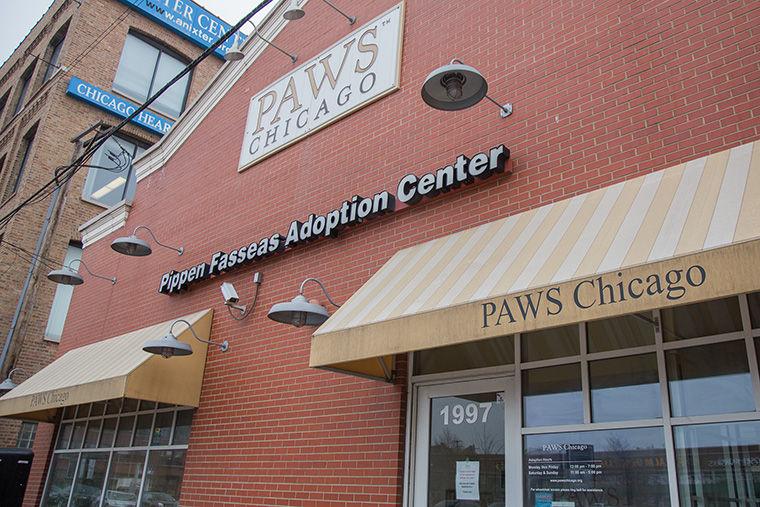Petition fights stray animal hold ordinance in Chicago
A Change.org petition was launched in March challenging the November 2014 stray hold ordinance affecting Chicago’s Animal Care and Control Department that limits the number of days stray animals will be held. The center will now only hold animals for a maximum of three days, unless they arrive with identification.
April 13, 2015
The City of Chicago’s Animal Care and Control Department passed an ordinance in November 2014 that limits the number of days it holds stray dogs and cats that do not have proper identification.
Under the ordinance, animals brought to the center without a microchip or other form of identification will be kept for three days instead of the previous five-day hold before they can be adopted or transferred to a rescue group. An animal with a microchip, nametag or a city dog license, however, can stay at the shelter for up to seven days, according to the ordinance.
Although many support the ordinance, there are still shelters and Chicagoans who oppose it.
A petition that was launched in March on Change.org to revisit the measure that reduces the stray hold time for dogs and cats in Chicago has gained more than 11,000 of its 15,000-signature goal, as of press time.
Ann Markham, director of adoption for the Lake Shore Animal Shelter, said she is completely opposed to the ordinance.
“I really believe these animals, especially dogs, should have an opportunity of at least seven days for their owners to find them,” Markham said. “How many of these animals can [a shelter] absorb? That would be my main question.”
Markham said she questions whether the animals that stay three days at the pound are being put into shelters. She does not see the measure saving lives, but instead thinks animals may be euthanized after the three-day hold ends.
Brad Powers, assistant to the director at Chicago’s Animal Care and Control Department, said in an emailed statement that the department is working to educate pet owners on safe practices for their pets. This includes educating pet owners about the importance of pet microchips and tagging. The center provides pet owners with microchips and city dog tag licenses through low-cost vaccine clinics, which are hosted in the shelter and throughout the city. The center has recently scheduled a free microchip event on April 23 at the Original Rainbow Cone, 9225 S. Western Ave.
Powers said the center could schedule up to three free microchip events throughout the summer.
Powers said in addition to the center’s partnership with the Humane Society of the United States, the center will launch a pilot program in which animal control officers will post signs in communities where stray animals have been found. The postings will include a description of the animal at the location where it was found.
Robin Barbiers, president of the Anti-Cruelty Society, said shortening the amount of time animals are kept at the Animal Care and Control center is beneficial to the animals.
“Statistics show that animals, especially cats, without identification don’t get reclaimed—less than 1 percent get reclaimed, and if they stay at the Animal Care and Control Center for five or seven days, the chances of them being able to leave alive is reduced dramatically with [each day] they stay [in the center],” Barbiers said. “They go into the facility with no chance of getting back to their original owner, if they had one, [but] this way they can turn around, go to a rescue, go to another adoption facility and find a forever home.”
Barbiers stressed the importance of registering pet microchips with owners’ most current information.
“I over cannot emphasize the need to register your current address and contact information with the microchip company because that is where the system fails,” Barbiers said. “If you do not have current information, we cannot find you if we have your pet.”
Jenny Schlueter, director of development in marketing and manager of the transfer program for the Tree House Humane Society, said cats commonly develop upper respiratory infections after three days of confinement in high-volume facilities, such as CACC and sometimes need to be treated for several weeks before the shelter can perform basic veterinarian services.
“The amount of time [veterinarians] need to invest to save an animal doubles and they cannot rescue as many animals,” Schlueter said. “By decreasing the amount of time that the animals need to [stay at the center, the ordinance] is making it much easier on us to do that.”








